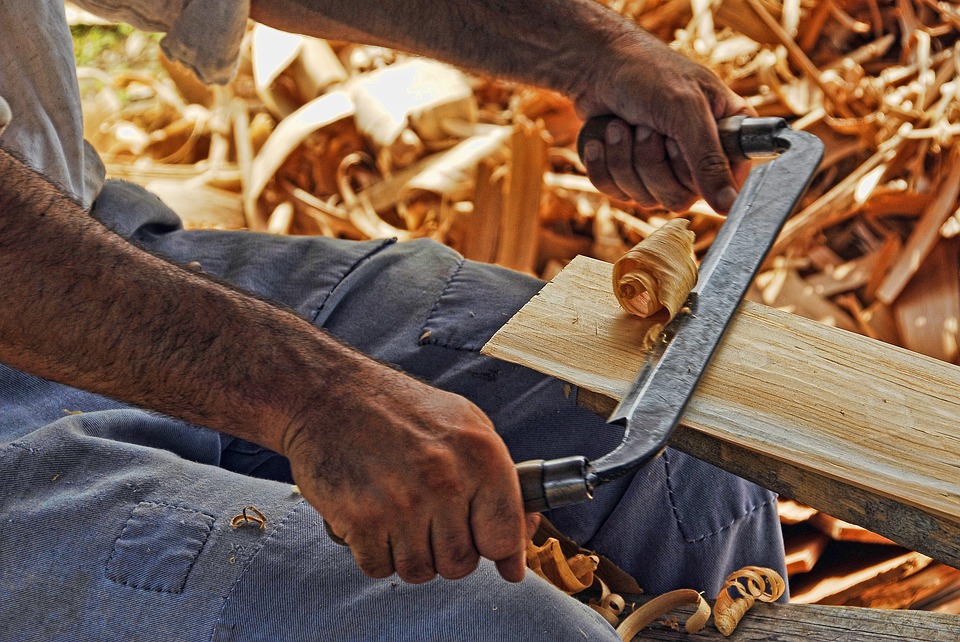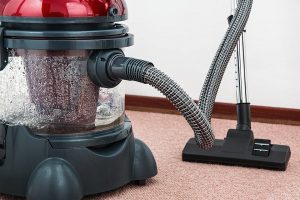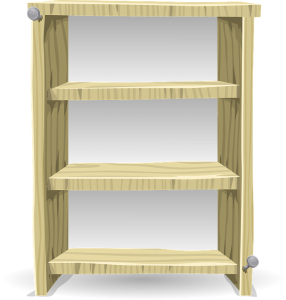
Settling for a messy workshop is far different than maintaining a messy house. A house may often be untidy and maybe even unsightly, but that doesn’t necessarily mean it is a hazard. A messy workshop, however, is usually a different story.
There are many reasons that you should aim to have a clean and neat workshop. Woodworking means that you are often handling a variety of materials and that means there is considerable risk of danger. There are also additional benefits to having a clean and neat workshop, such as saving time.
 Many of the tips in this article will help you get organized, keep your workshop clean and keep it that way. Getting organized and keeping your workshop and space clean doesn’t have to be a laborious and time-consuming process. With some initial work and periodic maintenance, you can make your workshop cleaner, easier to use and even safer. If you want to save time and get more out of your woodworking then these tips are for you.
Many of the tips in this article will help you get organized, keep your workshop clean and keep it that way. Getting organized and keeping your workshop and space clean doesn’t have to be a laborious and time-consuming process. With some initial work and periodic maintenance, you can make your workshop cleaner, easier to use and even safer. If you want to save time and get more out of your woodworking then these tips are for you.
Tip One-Remove Scrap Wood Immediately and Store Safely
Scrap wood is most definitely a hazard. Letting scrap wood pile up isn’t like letting your dishes pile up in your house or having a messy desktop, real or virtual. Scrap wood is a fire hazard, especially if you smoke or have friends or family members that do then you should keep as little scrap wood in your workshop as possible.

If a fire breaks out your wood scraps will essentially act as kindling for a fire. It is also important to note that if you have worked with treated wood then the smoke created will also be toxic due to those treatments.
The best way to deal with your scrap wood is to recycle it as soon as possible. By not letting your scrap wood pile up you are definitely increasing the both the safety and the organization of your workshop.
Tip Two-Invest in a High-Quality HEPA Shop Vacuum Cleaner
Our second tip is to invest in a high-quality HEPA shop vacuum cleaner, or at the very least a vacuum cleaner with a HEPA filter, such as a Dyson vacuum cleaner.

Many may feel that HEPA vacuum cleaners are “overkill” but where wood working is concerned, HEPA vacuum cleaners are a smart move. Wood working creates a consistently large amount of fine dust. Most homes have just a fraction of the fine dust that one would fine in a workshop.
Periodically vacuuming your workshop with a HEPA vacuum will remove fine wood dust particles. Removing these fine particles will help protect your lungs and reduce your fire risk. Additionally, it’s prudent to wear a face mask and install an air purifier when you are cutting wood.
Tip Three-Get Bins, Label Them and Store Wisely
Organizing a woodworking workshop is much like organizing many spaces in that a few organizational bins will go a very long way. It might be obvious to have a tool chest to organize your woodworking tools, but what many woodworkers forget to do is have organizational bins for other items.

If you have chemicals such as finishes and varnishes, those chemicals should be stored and away from any flames or sparks. Labeling your bins is actually a very worthwhile activity even if you just use a black marker. Being able to quickly find what you need during your woodworking will definitely make your process faster and more enjoyable.
Simple shelving units can be the perfect complement to your bins, so consider investing in some shelving, or even making your own, to help you get organized and stay organized.
Tip Four-Invest in Proper Lighting
Good workshop lighting is relatively cheap. It is hard to get organized and stay that way if you can’t see your workspace. So, get rid of the dark corners of your workshop with some extra lighting! If you don’t have enough overhead lights, remember that plugging in desk lamps or floor lamps can make a big difference. Just remember to turn off all the lights when you leave the workshop to conserve energy.
Tip Five-Ask a Friend For Input

Asking a friend to evaluate your workspace for safety and organization could be time well-spent. While it may seem counterintuitive, the more time you spend doing something or in a given space the greater the chances that you develop habits and overlook key elements.
Having a friend or family member evaluate the organization and safety of your workshop could be a prudent move. Simply ask, “Does it seem like I covered everything,” and see what response you get. You might be surprised what you learn, especially if your friend is a fellow woodworker.
Tip Six-Periodically Set Aside Organization Time and Mark It on Your Calendar
Life can get in the way of keeping your workshop organized, clean and neat. You may find that the only way to keep your workspace clean is to mark it on your schedule. If you use a digital calendar on your computer or phone, be sure to plug in a few minutes every month that you use to specifically clean up your workspace. Otherwise years can go by and you can simply forget to maintain your space.

All of the ideas outlined in this article can be implemented quickly and easily, so there is no reason not to improve your space. Those looking to make their woodworking workshops safer and easier to lose will discover that these six tips are worth their weight in gold.
Combined, you can use these tips to improve your safety of your workshop while at the same time boosting your productivity. In the end, it is important to make cleaning and organizing your workshop a priority. An unclean workshop isn’t your friend as it can be both a safety hazard and a health hazard. When you know that your space is well thought through and safe, you’ll be able to boost your productivity and your results.